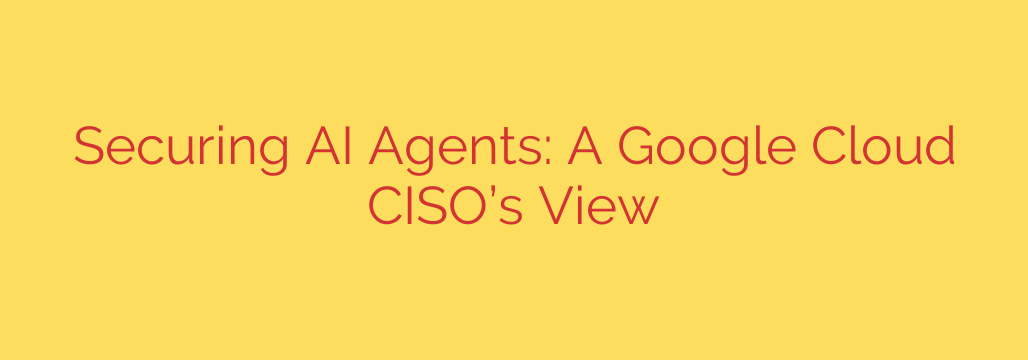
Securing the next generation of AI agents is becoming a critical challenge as these autonomous systems gain capabilities and interact more deeply with data and other systems. Unlike traditional software, agents leverage large language models (LLMs) and reasoning capabilities, leading to unique security considerations.
One primary concern is the input and output handling. Agents are susceptible to prompt injection, where malicious input manipulates the agent into performing unintended actions or revealing sensitive information. Ensuring robust validation and sanitization of both inputs (prompts) and outputs (agent responses or actions) is paramount. This helps prevent the agent from being tricked into generating harmful content, accessing unauthorized data, or interacting with dangerous external systems.
Another significant risk lies in data security and privacy. AI agents often process vast amounts of data, some of which may be sensitive. Protecting this data from exfiltration or misuse is crucial. Implementing least privilege principles, restricting the agent’s access only to the data and systems necessary for its function, is a fundamental security control. Encryption, data loss prevention (DLP), and strict access controls are also vital layers of defense.
The actions taken by an agent also pose risks. Due to their autonomous nature, agents might perform actions that are harmful or unintended if not properly constrained and monitored. This includes making unauthorized purchases, deleting critical data, or interacting negatively with users or other systems. Mechanisms to review, approve, or limit specific high-risk actions are necessary. Implementing a robust monitoring and auditing framework allows for detecting anomalous behavior and investigating incidents.
Furthermore, the complexity and opaqueness of LLMs can make it difficult to fully understand or predict an agent’s behavior, complicating threat modeling and vulnerability assessment. Supply chain security for the models and components used to build agents is also an emerging concern.
To effectively secure AI agents, a holistic approach is required. This involves security being a core consideration from the initial design and development phase. Rigorous testing, including adversarial testing, is essential to identify vulnerabilities before deployment. Continuous monitoring, incident response capabilities, and ongoing security updates are necessary for long-term resilience. Addressing these challenges head-on is essential to unlock the potential of AI agents safely and responsibly in a complex digital landscape.
Source: https://cloud.google.com/blog/products/identity-security/cloud-ciso-perspectives-how-google-secures-ai-agents/








